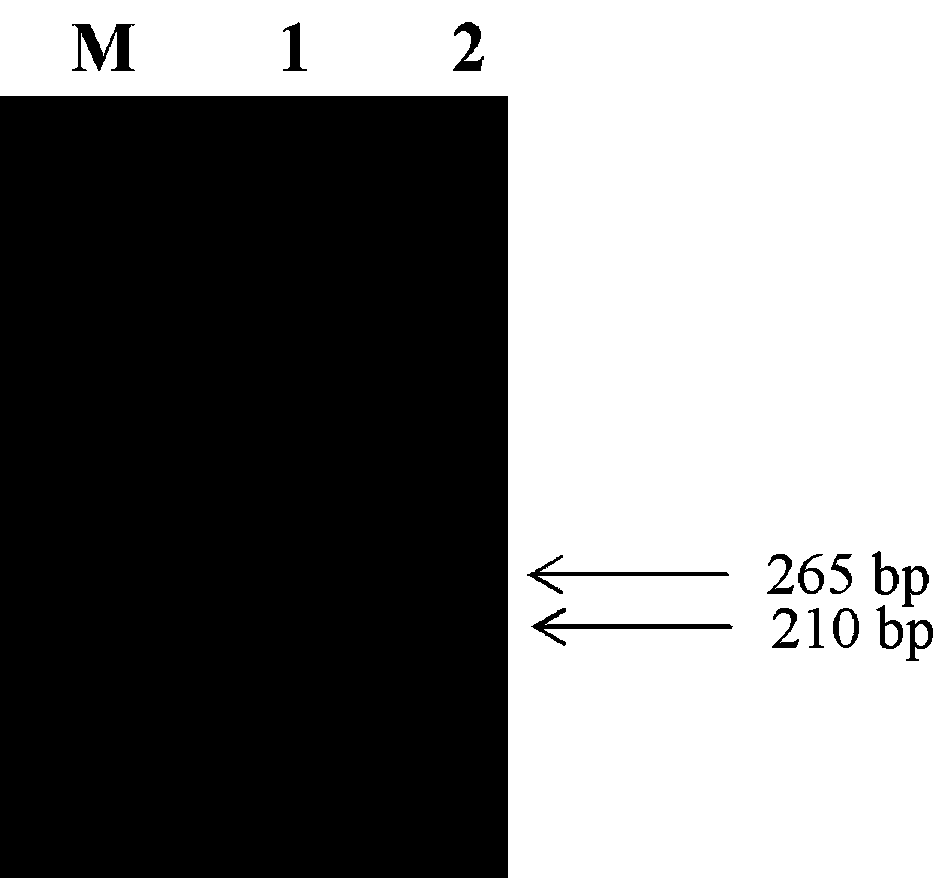dsrna inhibiting gene expression of aphid chloride ion channel and its application
A chloride channel and gene expression technology is applied in the field of dsRNA for inhibiting the expression of chloride channel genes of aphids, and can solve the problems of ineffective breeding of insect resistance, unclear resistance mechanism, and harm to humans and animals.
- Summary
- Abstract
- Description
- Claims
- Application Information
AI Technical Summary
Problems solved by technology
Method used
Image
Examples
Embodiment 1
[0036] Example 1 Aphids SaCIC4 Gene dsRNA acquisition
[0037] (1) Extraction of total RNA and synthesis of cDNA
[0038] About 20 tube aphids were taken respectively, and total RNA was extracted according to the instructions of the Trizol kit of Beijing Quanshijin Company, purified with RNA Cleaning Kit, and the first strand of cDNA was synthesized by reverse transcription. The operation steps refer to the instructions of the kit.
[0039] (2) Primer design and gene cloning
[0040] Primers P1-F and P1-R were designed using Primer Primer5.0 software and synthesized by Beijing Huada Gene Company. GFP gene ( GFP ) fragment was amplified from the 16318hGFP plasmid preserved in the laboratory of the School of Life Science and Technology, Nanyang Normal University, and primers P2-F and P2-R were designed using Primer Primer5.0 software.
[0041] P1-F: 5'- TAATACGACTCACTATAGGG GAAAATGAAAAAATCGAAAG-3' (the underlined sequence is the 1st to 20th positions of SEQ ID No: 2);
...
Embodiment 2
[0059] Example 2 SaCIC4 Application of dsRNA in inhibiting the growth of aphids
[0060] (1) Preparation of artificial feed for aphids and preparation of feeders
[0061] References for preparation of artificial feed and feeder (Li Caixia, Gao Lifeng, Gao Lingling, Li Runzhi. Research on feeding aphids in pure artificial nutrient solution. Journal of Shanxi Agricultural University, 1997, 17(3): 225-228.) , filter artificial feed with a 0.2 μm bacterial filter, aliquot into 2.0 mL sterilized centrifuge tubes and store in a -20°C refrigerator to avoid repeated freezing and thawing.
[0062] (2) dsRNA ( SaCIC4 dsRNA) in inhibiting the growth of aphids
[0063] The feeding method of aphids is described in the following literature: Jiao Min, Liu Shusheng. The technology of feeding aphids with artificial diet. Acta Entomological Journal of East China, 2004, 13(2): 102-109.
[0064] Aphid aphid SaCIC4 dsRNA feeding group: put 20 3rd-instar nymphs of A. sativa in each aphid fe...
PUM
 Login to View More
Login to View More Abstract
Description
Claims
Application Information
 Login to View More
Login to View More - R&D
- Intellectual Property
- Life Sciences
- Materials
- Tech Scout
- Unparalleled Data Quality
- Higher Quality Content
- 60% Fewer Hallucinations
Browse by: Latest US Patents, China's latest patents, Technical Efficacy Thesaurus, Application Domain, Technology Topic, Popular Technical Reports.
© 2025 PatSnap. All rights reserved.Legal|Privacy policy|Modern Slavery Act Transparency Statement|Sitemap|About US| Contact US: help@patsnap.com

